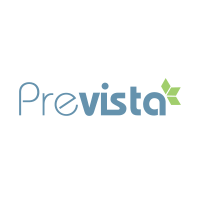lEARN MORE ABOUT OUR APPENTICESHIPS
AND RECRUITMENT
Apprenticeships
Leaner
Apprenticeships
Why Complete An Apprenticeship?
Apprenticeships combine on-the-job training with formal education to provide a practical pathway to a fulfilling career. Here's a breakdown of how they work:
- Real-world experience: You'll gain valuable hands-on experience in your chosen field, working alongside experienced professionals.
- Earn while you learn: You'll receive a salary and employee benefits throughout your apprenticeship, making it a financially viable option.
- Gain a recognised qualification: You'll work towards a nationally recognized qualification, such as a diploma or degree, which will enhance your career prospects.
- Dedicated study time: You'll have allocated time for off-the-job training, which may include classroom-based learning, online courses, or work-based projects.
- Employer support: Your employer will provide guidance and support throughout your apprenticeship journey, helping you develop your skills and progress in your career.
Testimonials
Luciana Pereira Duailibe - Level 5 in Early Years Lead Practitioner
My Journey
Since I started this course, it’s been such an insightful experience. I’ve learned so much, not just from the course itself but also from the great collaboration and exchange of ideas with other students. The tutors have been amazing—so knowledgeable and always supportive, which has made a real difference in completing the tasks.
How My Apprenticeship Benefited Me:
This apprenticeship has helped me gain valuable knowledge about child development, the EYFS curriculum and Statutory Framework and improved my practice, but more than that, it’s boosted my confidence and really developed my leadership skills. I feel much more capable and prepared to take on new challenges.
How You Helped Me Achieve This:
I’m now working in a place where I feel truly valued and have a great sense of belonging. The support and guidance throughout this journey have been incredible, and I’m really grateful for the experience.
Thank you Prevista, thank you all!
Testimonials
Zulekha Ullah - Childcare level 2
My Journey
I started my childcare level 2 journey not knowing a lot but my tutor was amazing and helped a lot and was always there to answer questions and to guide me by the end of my course I wanted to start my level 3 because level 2 gave me the confidence to believe I can do it.
How My Apprenticeship Benefited Me:
The apprenticeship benefited me by giving my confidence in my room because it taught me knew things that I could use and it also helped me learn more about childcare and made me better at my job. It also meant that when I was in situations at work I knew how to get three it out due to my coursework
How You Helped Me Achieve This:
The PowerPoints were easy to understand and were full of points that helped in answering the questions also my tutor was always there to help answer questions and help me when I was stuck, all of this help me to pass my course.
Testimonials
Daniela Bozova - Level 3 Early Years Educator Apprenticeship
My Journey
I started my apprenticeship course on 15th November 2023 and planned end 14th June 2025. I went through 13th Modules.
How My Apprenticeship Benefited Me:
I learnt more about children's learning and development in the early years, and how as a practitioner, I will better support them through their journey.
How You Helped Me Achieve This:
I was supported very well from my tutor and all the staff from Prevista. I learned and got knowledge and skills which will help me in my role as an early years practitioner. So I can better help and support children in my setting.
Contact us
Thank you for signing up!
Please try again later
